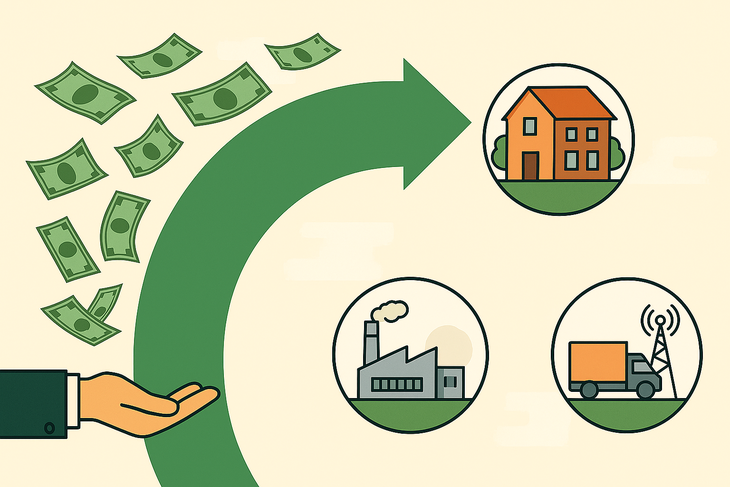
Credit "exploded" recently, where did the money "run" to? - Photo: AI drawing
The information was mentioned by Mr. Tran Ngoc Bau - General Director of WiGroup Financial Economic Data Company - at the economic program organized by WiGroup in coordination with Vietnambiz on the evening of July 15.
Strong credit flows into real estate, what to worry about?
Mr. Tran Ngoc Bau said that in the first half of this year, economic growth and credit both "exploded".
However, many concerns still arise: Why is the economy growing well but people's consumption is not increasing, or is credit growing strongly but businesses still have difficulty accessing loans?
"If we look deeply into the economic growth components, we can see that in the past four quarters - especially the most recent quarter - economic growth still depends heavily on the FDI industrial sector and the public sector (development investment expenditure and regular expenditure)," Mr. Bau analyzed.
Meanwhile, the rest of the economy, including households and the private sector, has not really picked up, which is also the reason why many people do not feel a clear connection between economic growth figures and their own income growth.

Mr. Tran Ngoc Bau
Mr. Bau also pointed out that from the beginning of 2024 until now, the credit growth rate poured into the production sector has almost "stagnated".
Credit to the trade, transport and telecommunications sectors also remained stable at around 18-19%.
On the contrary, credit poured into consumption and real estate grew very strongly, reaching record levels in many years.
According to Mr. Bau, in the context of difficult consumption, consumer credit is unlikely to increase strongly. Therefore, credit growth mainly comes from real estate.
"Clearly, the strong credit growth over the past two years, especially in the last six months, has been almost entirely driven by the real estate and construction sectors. Meanwhile, the industrial sector has maintained a slow growth rate throughout the year. This is something that needs to be recognized, as it reflects a mismatch in credit flows," Mr. Bau emphasized.
He also warned: "Concerns about the credit flowing into real estate in the past 6 months and 1 year will cause risks to real estate prices and risks to the banking system in the future. Those are market concerns, but policymakers or managers sometimes have other strategies."
In essence, in the past, the debt capital structure of real estate companies listed on the Vietnamese stock exchange had up to 60% coming from bond mobilization. Currently, this ratio is only about 30-40%.
The total value of outstanding bonds in the real estate industry has also decreased from nearly VND600,000 billion to more than VND100,000 billion. So when they reduce bond borrowing, it means they have to borrow from banks to repay that part, Mr. Bau commented.
Is asset inflation accelerating?
Further analyzing the growth drivers, Mr. Nguyen Hoang Linh - research director of Vietcombank Fund Management Company (VCBF) - said that Vietnam's current policies focus heavily on the supply side, especially improving transport infrastructure and increasing real estate supply.
"However, it should be noted that supply must be met by demand. Demand in the economy depends on people's long-term income, which in turn depends on whether businesses are doing well and expanding production and services - which in turn leads to more recruitment," said Mr. Linh.
He also commented that although inflation according to the consumer price index is low compared to the Government's plan, asset inflation is showing signs of increasing rapidly, especially in housing real estate prices.
This has resulted in many people being unable to buy a house despite their need. When real estate prices increase, rents also increase, pushing up the cost of living and putting great pressure on life.
Regarding the impact of exchange rates, Mr. Linh said that if the exchange rate is under too much pressure, inflation will be affected. However, in the calculation of Vietnam's consumer price index, most imported goods only have a large impact on the petroleum group.
In the recent period, oil prices have remained low thanks to the slowing growth of the world economy and uninterrupted supply. Therefore, up to now, the spillover effect from exchange rates to inflation has not been much.
Source: https://tuoitre.vn/ca-trieu-ti-dong-bom-ra-kinh-te-chuyen-gia-phan-tich-duong-di-dong-tien-20250716101851599.htm







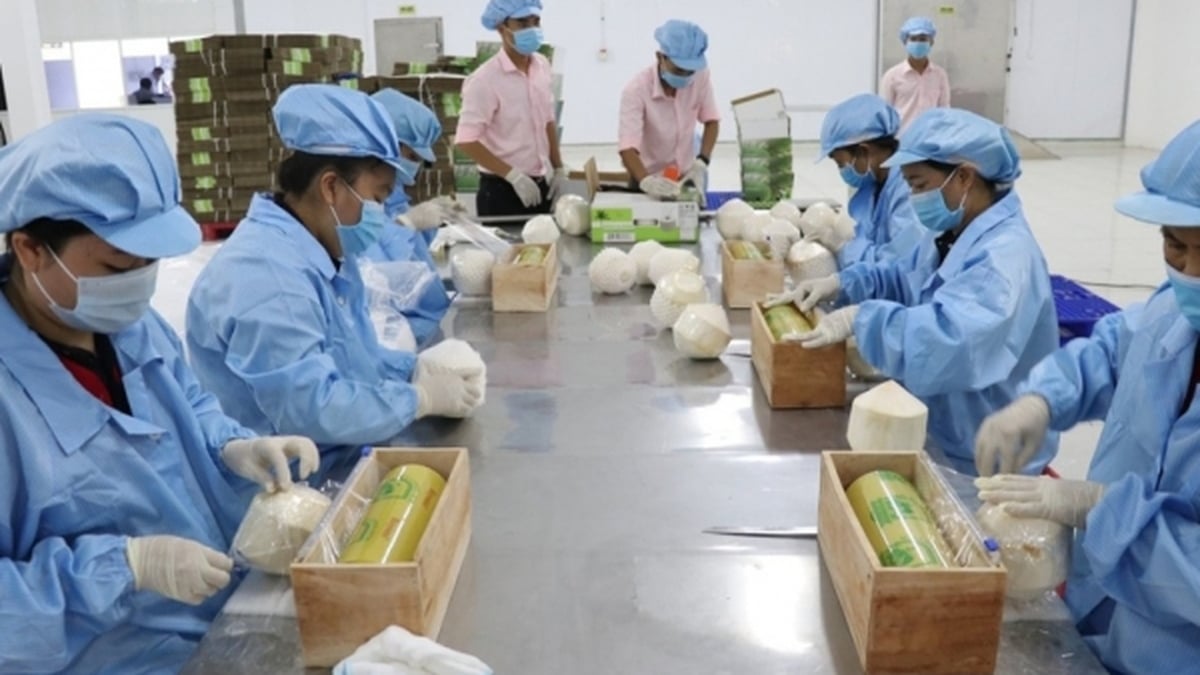


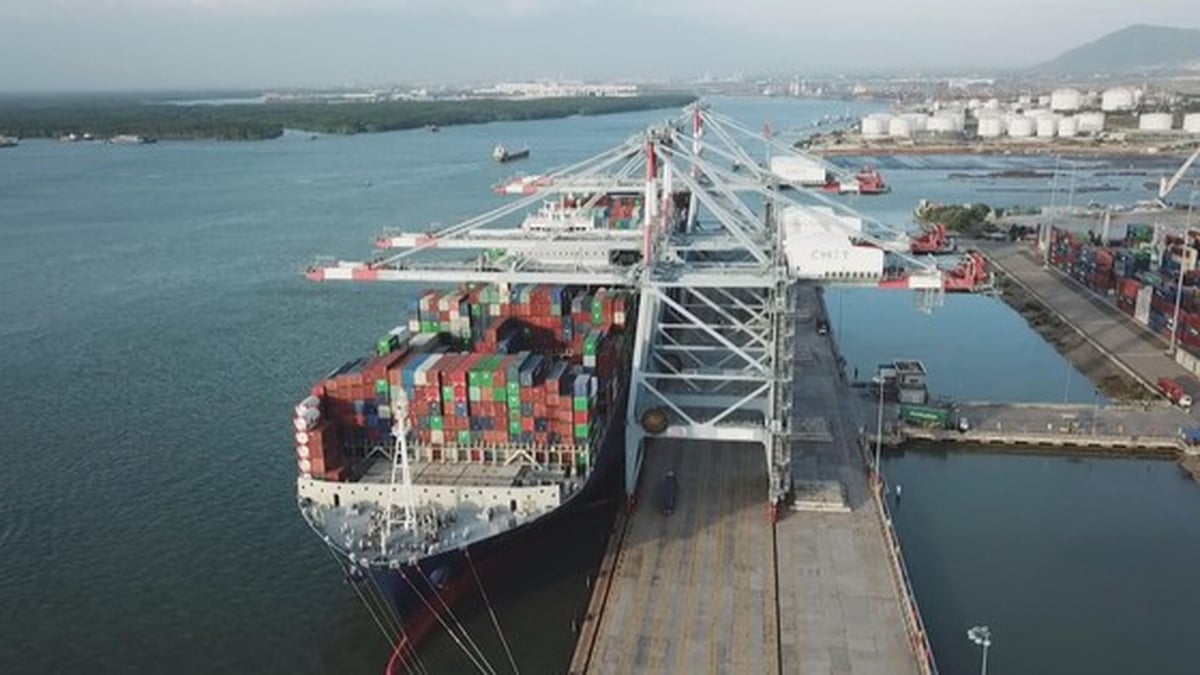































































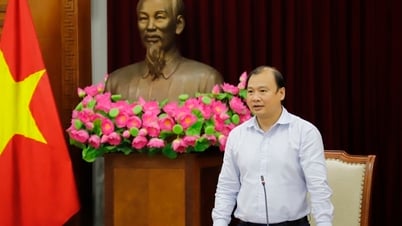
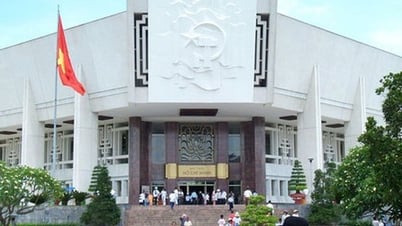

























Comment (0)